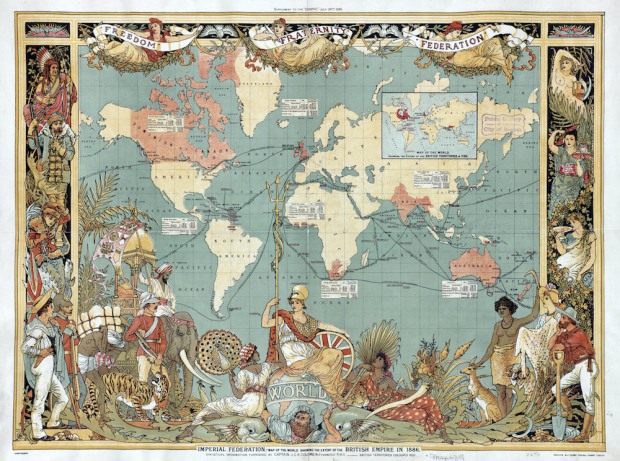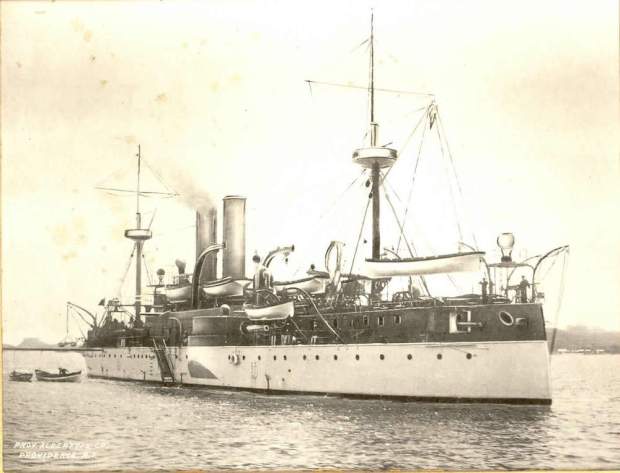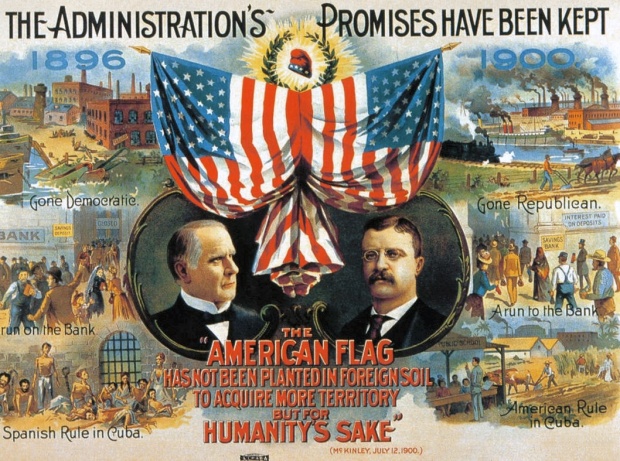
A map of the world in 1886, by Walter Crane. Areas under British control are highlighted in red. (Credit: Wikimedia Commons)
Niall Ferguson, born and raised in Scotland, is a conservative British historian and Harvard University professor, who is leaving this year to join the faculty of Stanford University’s Hoover Institution on War, Revolution, and Peace. His writing about war, economics, imperialism, and civilization are provocative, well publicized, and politically engaged.
Ferguson advocates, and wishes to rehabilitate, US imperialism by getting Americans to acknowledge and embrace it. The problem, he argues, is that the US suffers from imperial denial. (more…)



